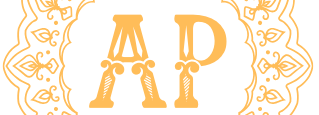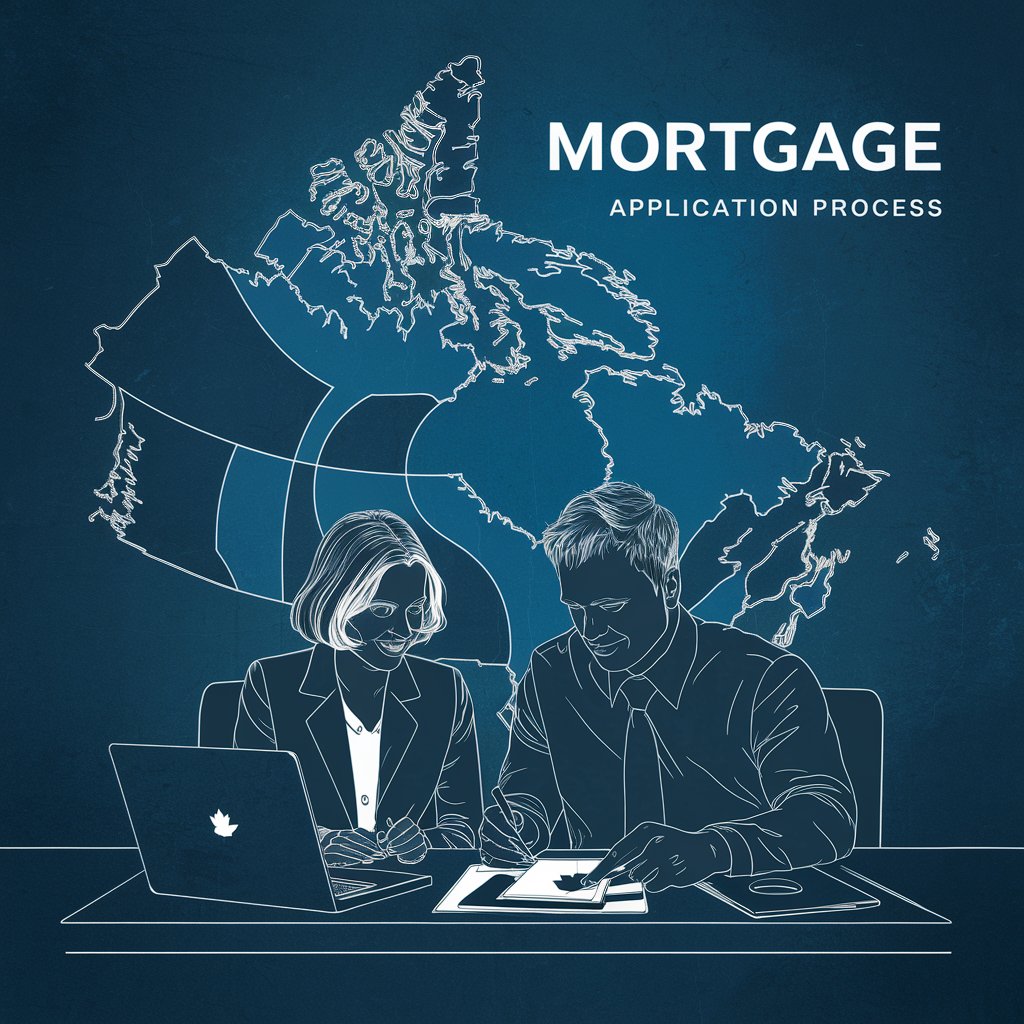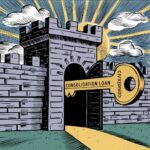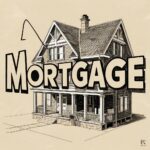 Introduction
IntroductionOverview of the mortgage market in Canada
Importance of understanding mortgages
Purpose of the article
Types of Mortgages in Canada
Fixed-rate mortgages
Variable-rate mortgages
Open vs. closed mortgages
Conventional vs. high-ratio mortgages
Mortgage Providers in Canada
Banks
Credit unions
Mortgage brokers
Online lenders
Eligibility Criteria for a Mortgage in Canada
Credit score requirements
Income and employment stability
Down payment requirements
Debt-to-income ratio
The Mortgage Application Process
Pre-approval
Choosing the right mortgage
Submitting the application
Mortgage approval and closing
Mortgage Rates in Canada
Factors affecting mortgage rates
Fixed vs. variable rates
How to secure the best rates
Rate comparison tools
Government Programs and Incentives
First-Time Home Buyer Incentive
Home Buyers’ Plan (HBP)
GST/HST New Housing Rebate
CMHC mortgage loan insurance
Understanding Mortgage Terms and Conditions
Amortization period
Mortgage term
Prepayment options
Penalties and fees
Refinancing Your Mortgage
When to consider refinancing
Benefits of refinancing
Steps to refinance your mortgage
Potential drawbacks
Managing Your Mortgage
Making extra payments
Renewing your mortgage
Strategies for paying off your mortgage faster
Dealing with financial difficulties
Common Mortgage Mistakes to Avoid
Not shopping around for rates
Ignoring additional costs
Overextending financially
Not understanding the terms
Conclusion
Recap of key points
Importance of thorough research and planning
Encouragement to seek professional advice
FAQs
What is the difference between a fixed-rate and a variable-rate mortgage?
How much down payment do I need for a mortgage in Canada?
Can I get a mortgage with bad credit?
What is mortgage pre-approval?
How do I choose the right mortgage provider?
Mortgage Canada
Introduction
The journey to homeownership in Canada begins with understanding the mortgage process. Mortgages are crucial financial tools that allow individuals and families to purchase homes without paying the full price upfront. Navigating the mortgage landscape can be complex, but with the right knowledge, you can make informed decisions that suit your financial situation. This article will explore various aspects of mortgages in Canada, including types, application processes, rates, and government programs.
Types of Mortgages in Canada
Fixed-Rate Mortgages
A fixed-rate mortgage offers stability with a constant interest rate throughout the mortgage term. This means your monthly payments remain the same, making it easier to budget.

Variable-Rate Mortgages
Variable-rate mortgages have interest rates that fluctuate based on the prime rate. While this can lead to lower payments if rates decrease, it also carries the risk of higher payments if rates increase.
Open vs. Closed Mortgages
Open Mortgages: Allow for additional payments or full repayment without penalties, offering flexibility at typically higher interest rates.
Closed Mortgages: Have lower interest rates but restrict additional payments and come with penalties for early repayment.
Conventional vs. High-Ratio Mortgages
Conventional Mortgages: Require at least a 20% down payment and do not need mortgage insurance.
High-Ratio Mortgages: Have a down payment of less than 20% and require mortgage insurance through the Canada Mortgage and Housing Corporation (CMHC).
Mortgage Providers in Canada
Banks
Major banks in Canada, such as RBC, TD, and Scotiabank, offer a wide range of mortgage products with competitive rates.
Credit Unions
Credit unions often provide personalized service and competitive rates to their members.
Mortgage Brokers
Mortgage brokers work with multiple lenders to find the best mortgage rates and terms for their clients.
Online Lenders
Online lenders offer convenience and often lower rates due to reduced overhead costs.
Eligibility Criteria for a Mortgage in Canada
Credit Score Requirements
A good credit score (typically 650 and above) improves your chances of securing a mortgage with favorable terms.
Income and Employment Stability
Lenders prefer applicants with a stable income and employment history, as it indicates the ability to repay the mortgage.
Down Payment Requirements
The minimum down payment in Canada is 5% for homes under $500,000. Homes priced between $500,000 and $999,999 require 5% for the first $500,000 and 10% for the remaining amount.
Debt-to-Income Ratio
A low debt-to-income ratio indicates that you can manage your debt payments alongside your mortgage payments, making you a more attractive borrower.
The Mortgage Application Process
Pre-Approval
Getting pre-approved for a mortgage gives you an idea of how much you can borrow and shows sellers that you are a serious buyer.
Choosing the Right Mortgage
Consider your financial situation, goals, and risk tolerance when choosing between fixed, variable, open, and closed mortgages.
Submitting the Application
Submit your application with necessary documents, including proof of income, credit history, and details of your debts and assets.
Mortgage Approval and Closing
Once approved, review and sign the mortgage agreement. The closing process involves transferring funds and finalizing the purchase.
Mortgage Rates in Canada
Factors Affecting Mortgage Rates
Rates are influenced by the Bank of Canada’s policy rate, inflation, and the overall economic environment.
Fixed vs. Variable Rates
Fixed rates offer stability, while variable rates can be lower initially but are subject to change.
How to Secure the Best Rates
Improve your credit score, make a larger down payment, and shop around for the best rates. Consider using rate comparison tools available online.
Government Programs and Incentives
First-Time Home Buyer Incentive
This program helps first-time buyers by offering 5% or 10% of the home’s purchase price to put towards a down payment.
Home Buyers’ Plan (HBP)
Allows first-time buyers to withdraw up to $35,000 from their RRSPs to buy or build a home.
GST/HST New Housing Rebate
Offers a rebate on part of the GST or HST paid on the purchase price or cost of building a new home.
CMHC Mortgage Loan Insurance
Required for high-ratio mortgages, this insurance protects lenders in case of borrower default and enables borrowers to secure mortgages with lower down payments.
Understanding Mortgage Terms and Conditions
Amortization Period
The amortization period is the total length of time over which the mortgage is repaid, typically 25 years.
Mortgage Term
The term is the length of time you commit to the mortgage rate, lender, and conditions. Common terms range from 1 to 5 years.
Prepayment Options
Prepayment options allow you to pay off your mortgage faster without penalties. These include lump-sum payments and increasing regular payments.
Penalties and Fees
Understand the penalties for breaking your mortgage term early and any fees associated with your mortgage.
Refinancing Your Mortgage
When to Consider Refinancing
Refinancing can be beneficial if interest rates have dropped, your credit score has improved, or you need to access home equity.
Benefits of Refinancing
Refinancing can lower your interest rate, reduce monthly payments, or provide funds for major expenses.
Steps to Refinance Your Mortgage
Assess your financial situation, compare lenders, submit a refinance application, and close on the new mortgage.
Potential Drawbacks
Consider the costs of refinancing, such as penalties for breaking your current mortgage and fees for the new mortgage.
Managing Your Mortgage
Making Extra Payments
Extra payments can reduce your principal balance and the total interest paid over the life of the mortgage.
Renewing Your Mortgage
At the end of your mortgage term, you can renew with your current lender or shop around for better rates and terms.
Strategies for Paying Off Your Mortgage Faster
Increase your payment frequency, make lump-sum payments, and consider shortening your amortization period.
Dealing with Financial Difficulties
If you face financial difficulties, contact your lender to discuss options such as payment deferrals or loan modification.
Common Mortgage Mistakes to Avoid
Not Shopping Around for Rates
Comparing rates from multiple lenders can save you money over the life of your mortgage.
Ignoring Additional Costs
Factor in closing costs, property taxes, and maintenance when budgeting for a home.
Overextending Financially
Borrowing the maximum amount you qualify for can strain your finances. Consider what you can comfortably afford.
Not Understanding the Terms
Ensure you understand all terms and conditions before signing a mortgage agreement.
Conclusion
Navigating the mortgage process in Canada requires careful planning and informed decision-making. By understanding the different types of mortgages, eligibility criteria, and the application process, you can make choices that align with your financial goals. Thorough research, comparison, and professional advice can help you secure a mortgage that meets your needs and sets you on the path to homeownership.
FAQs
What is the difference between a fixed-rate and a variable-rate mortgage?
A fixed-rate mortgage has a constant interest rate, while a variable-rate mortgage has an interest rate that fluctuates with the prime rate.
**How much down



